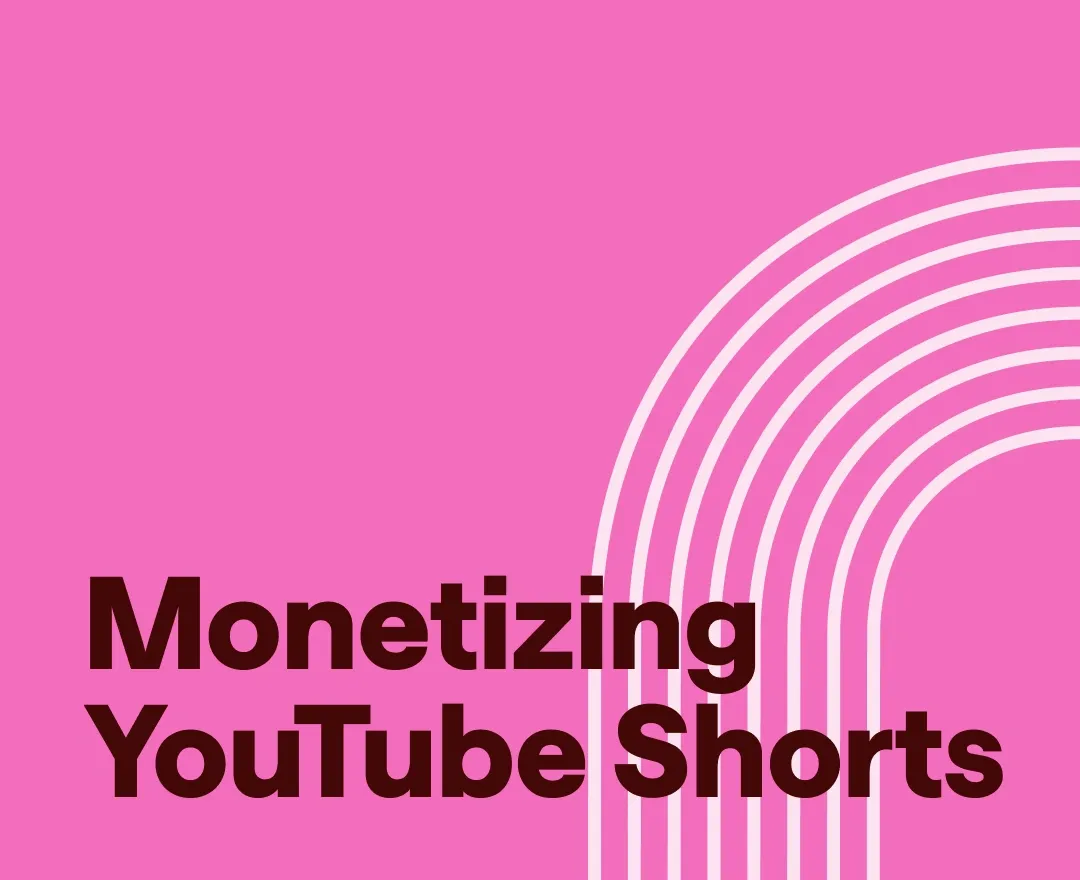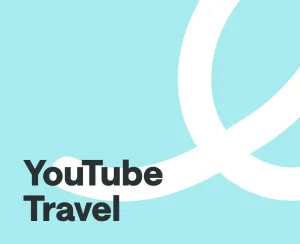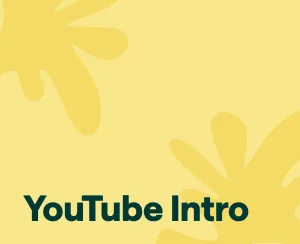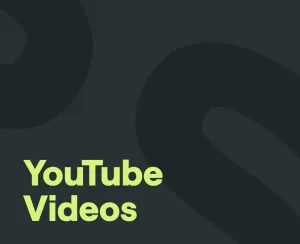YouTube Shorts has taken the platform by storm, drawing in creators with its fast-paced format and viral potential.
But here’s the big question: Can you actually make money from YouTube Shorts?
The answer is yes, and this guide will show you how.
From meeting monetization requirements to exploring creative revenue streams like affiliate links and merchandise, we’ll dive into everything you need to know on how to monetize YouTube shorts and turn them into profits.
Understanding YouTube Shorts Monetization
YouTube Shorts are YouTube’s answer to the growing popularity of short-form video content, designed to be quick, engaging, and easily consumed on mobile devices. These videos are up to 60 seconds long, giving creators a unique way to share bite-sized content, whether it’s viral challenges, funny skits, or quick tips.
Since launching in 2020, Shorts have exploded in popularity, becoming a go-to format for creators to reach and engage with a wide audience. As Shorts gained traction, YouTube recognized the importance of providing creators with ways to earn revenue from their content.
This move was crucial for a few reasons:
- Increased competition: With platforms like TikTok and Instagram Reels already monetizing short-form content, YouTube needed to offer a similar solution to keep creators on their platform.
- Creator support: By creating monetization opportunities for Shorts, YouTube aimed to encourage even more creators to participate, fueling the growth of diverse content and ensuring that the platform remained attractive for both new and established creators.
- Adapting to trends: As user consumption habits shifted towards shorter, faster content, YouTube recognized the need to evolve and offer a monetization model that could cater to this growing demand while also sustaining the creator economy.
With these goals in mind, YouTube introduced various monetization strategies to help creators capitalize on the success of Shorts. These efforts were designed to provide a more consistent income stream, allowing creators to turn their passion for creating short-form content into a sustainable business.
So, do YouTube Shorts make money? The answer is a definite yes! Now, let’s dive into the different ways of monetizing YouTube shorts.
Key Revenue Streams
While YouTube Shorts may be short on time, the revenue potential is anything but. From ad revenue-sharing to fan contributions, creators have multiple ways to make money from their Shorts.
Here’s an overview of the primary revenue streams available for creators in 2024:
1) Ad revenue sharing
Shorts creators now earn through ads placed between videos. YouTube distributes the revenue pool based on overall Shorts views, giving creators 45% of the allocated earnings after deducting music licensing fees. While it may not compare to long-form video revenue, it’s a sustainable way for creators with viral content to build consistent earnings.
2) YouTube Premium revenue sharing
YouTube Premium subscribers are another avenue for Shorts monetization. When Premium members watch your content, you earn a share of their subscription fee, calculated based on your contribution to their total watch time. It’s a subtle but impactful way to generate income from engaged viewers.
3) YouTube Fan funding options
YouTube fan funding options like Super Thanks, Super Chat, and Channel Memberships provide creators with additional revenue streams. These tools allow your audience to show their support directly, whether by tipping during live streams or subscribing for exclusive perks. They also help build a stronger connection with your audience while boosting your earnings.w
4) Merchandise and shopping features
YouTube’s Shopping features let creators integrate products directly into their Shorts, creating a seamless shopping experience for viewers. Whether you’re selling branded merchandise or promoting affiliate products, this feature is an excellent way to monetize a loyal fanbase while keeping your content engaging and interactive.
Eligibility Criteria for Monetization
To start earning from YouTube Shorts, creators need to meet specific eligibility criteria set by the YouTube Partner Program (YPP). While these requirements mainly guarantee a level of content quality and engagement, they also open up opportunities for creators to monetize their Shorts effectively.
Here’s a breakdown of the criteria you need to meet to be eligible for monetization:
Basic Requirements for YouTube Partner Program:
- At least 1,000 subscribers.
- 10 million valid public Shorts views in the last 90 days or 4,000 valid watch hours from long-form videos in the past year.
For smaller creators with fewer requirements:
- 500 subscribers.
- Three valid public uploads in the past 90 days.
- Three million valid public Shorts views in the last 90 days.
Additional Requirements:
- Adherence to YouTube’s Community Guidelines.
- Two-step verification enabled on your account.
- An active AdSense account connected to your YouTube channel.
Once you meet the above criteria, YouTube will review your channel to ensure everything is in compliance. It’s essential to focus on building an engaged community and creating consistent, high-quality content to improve your chances of approval. Meeting these requirements gives you access to monetization tools like ad revenue sharing, fan funding, and YouTube Premium earnings.
How to Get More Views and Engagement on YouTube Shorts
If you’re looking to turn your YouTube Shorts into a reliable source of income, increasing your views and engagement is crucial. The more people watch, like, comment, and share your content, the more opportunities you’ll have to monetize your YouTube content.
Here are several proven strategies to help you boost engagement and ensure that your YouTube Shorts monetization efforts are successful.
1) Focus on High-Quality Content
It all starts with content that resonates with your audience. To get the most out of monetizing YouTube Shorts, you need to produce videos that people want to watch, engage with, and share. Here are a few tips:
- Keep it concise but impactful: Shorts are designed for quick consumption, so make sure your content is clear and straight to the point. Whether it's a tutorial, a funny moment, or a viral trend, your video should capture attention in the first few seconds.
- Hook viewers early: Start with a compelling opening that grabs attention immediately. If viewers don’t get hooked in the first few seconds, they’re likely to scroll past.
- Experiment with different formats: Try different types of content—challenges, tutorials, comedy, or behind-the-scenes footage. See what works best with your audience, and focus on what drives the most interaction.
2) Leverage the power of trends
Leveraging trends is a powerful way to increase views and engagement on your YouTube Shorts. Trending content has the potential to go viral quickly, and viewers are naturally drawn to videos that align with current popular moments. By tapping into what's trending, you can position your Shorts in front of a larger, more engaged audience.
Staying updated on what’s trending across social media platforms and among other content creators will help you identify opportunities early. You can integrate trending audio tracks, memes, challenges, or popular themes into your Shorts to increase your chances of gaining views.
However, it’s not just about following trends—it's about making them your own. While jumping on a popular trend can help you gain attention, putting your unique spin on it will help you stand out from other creators. Whether it’s adding a personal touch to a viral challenge or incorporating your style into a trending meme, personalizing content makes it more authentic and relatable.
3. Optimize for search and discovery
Just like any other type of video, YouTube Shorts need to be discoverable. To increase your chances of being found by a broader audience, consider the following tips:
- Use catchy titles and descriptions: Your YouTube Shorts titles should be clear and compelling. Add relevant keywords like "funny," "viral," or “how-to” to attract more viewers.
- Add relevant hashtags: Hashtags play a role in YouTube Shorts monetization by giving you one more way for people to find your content. Use trending or niche-specific hashtags that will make your videos discoverable.
- Customize your thumbnails: Although YouTube Shorts don't rely on thumbnails as much as long-form videos, a well-designed thumbnail can still make a difference in helping your video stand out in the feed.
4) Be consistent with uploads
One of the key factors in growing your YouTube Shorts revenue is consistency. The more frequently you upload, the more chances you have to gain visibility and drive engagement.
- Create a content schedule: Decide how often you want to post—whether it’s once a day or a few times a week—and stick to it. Consistency builds familiarity with your audience and increases the likelihood of viewers returning for more.
- Post at optimal times: Timing can make a huge difference in engagement. Post when your audience is most active to maximize the chances of your Shorts being seen. You can analyze your YouTube analytics to determine when your viewers are online.
5) Engage with your audience
Building a relationship with your viewers will help foster a loyal fanbase, which is key to YouTube Shorts monetization. The more engaged your audience is, the higher the chances that they’ll support you in other ways, like YouTube fan funding.
- Respond to comments: Take the time to engage with your audience by responding to comments. This not only strengthens your community but also increases interaction, which can boost your videos in the YouTube algorithm.
- Encourage interaction: Ask your viewers to like, comment, and share your videos. A simple call to action like "Which idea do you prefer?" or "Tag a friend who needs to see this" can drive more interaction.
- Run polls or contests: Organize fun activities that encourage your audience to participate. Contests and polls are great ways to foster community involvement while keeping your audience engaged.
6) Collaborate with other creators
Collaborations with other creators can expand your reach and attract new subscribers. It’s a great way to boost your YouTube Shorts ad revenue and grow your audience base.
- Cross-promotion: Partner with creators who have a similar target audience. You can feature each other’s content or create collaborative Shorts to expose both creators to new viewers.
- Guest appearances: Invite other creators to feature in your videos or appear in your YouTube Shorts. This mutual promotion often leads to increased views and engagement for both parties.
7) Track your analytics and adjust your strategy
To optimize your YouTube Shorts for greater engagement, it’s essential to keep track of your performance metrics.
- Use YouTube Analytics: Regularly check your YouTube RPM (Revenue Per Mille) and other metrics such as views, watch time, and engagement. This will give you a clear picture of what’s working and what needs improvement.
- Analyze audience retention: Look at how long viewers are watching your Shorts. If you notice a drop-off at a particular point, tweak your content to improve viewer retention and keep them watching until the end.
Final Thoughts
Monetizing YouTube Shorts can be rewarding, but challenges like meeting YouTube’s monetization requirements and staying on top of trends can arise. To overcome these, focus on producing high-quality, consistent content and keep up with YouTube's changing policies.
Not sure how to create quality YouTube Shorts without spending hours on them? Podcastle's intuitive Video Editor makes it easy to produce professional videos quickly and boost engagement. Just drag and drop your clips, and instantly resize your video with the right aspect ratio, crop, cut, and trim as needed, and automatically generate any subtitles or captions you need before hitting export.
With the right tools and strategies, creating impactful YouTube Shorts can become a seamless part of your content creation journey.









